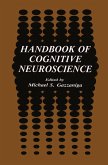Present-day behavioral and cognitive neuroscience is based on the idea that the conventional philosophical theory of the mind provides a reliable guide to the functional organization of the brain. Consequently, much effort has been expended in a search for the neural basis of such psychological categories as memory, attention, emotion, motivation, and perception. This book argues that (a) conventional psychological concepts originate from the philosophical speculations of ancient Greek philosophers, especially Plato and Aristotle; (b) there is serious doubt that these ancient philosophical analyses provide a reliable guide to the understanding of the human mind, human behavior, or the organization of the brain; and (c) that modern scientific studies of animal behavior provide a better guide to the study of the functional organization of the brain than is provided by conventional psychological concepts.
This book presents a series of essays on neuroscientific aspects of human nature and instinctive behavior, individually acquired (learned) behavior, human bipedal locomotion, voluntary movement, and the general problem of how the brain controls behavior. The author argues that concepts of the mind based on ancient Greek philosophy are past usefulness, and that modern animal behavior studies provide a better guide to the functional organization of the brain.
This book presents a series of essays on neuroscientific aspects of human nature and instinctive behavior, individually acquired (learned) behavior, human bipedal locomotion, voluntary movement, and the general problem of how the brain controls behavior. The author argues that concepts of the mind based on ancient Greek philosophy are past usefulness, and that modern animal behavior studies provide a better guide to the functional organization of the brain.
From the reviews: "Vanderwolf ... critiques current approaches to the study of the neural basis of mind, particularly as they apply to psychological processes such as perception, attention, motivation, emotion, memory, and cognition. ... Vanderwolf reminds those interested in the field of the brain, behaviour, and the mind that works best when it rests on objective data. Summing Up: Recommended. Upper-division undergraduates through faculty." (C. R. Timmons, CHOICE, Vol. 44 (11), July, 2007)








